#Mirha-Soleil Ross
Text
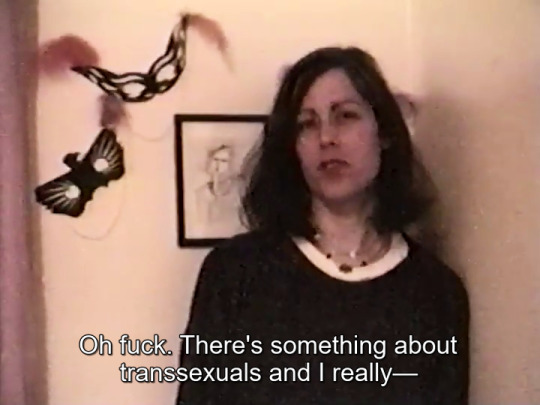

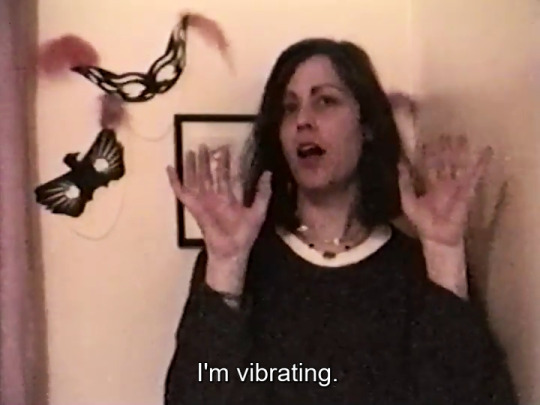
Gender Troublemakers (1993), dir. Mirha-Soleil Ross and Xanthra MacKay
#gender troublemakers#gendertroublemakers#mirha-soleil ross#xanthra mackay#film#film stills#movies#movie stills#trans#lgbtq#cinema#my posts
4K notes
·
View notes
Text


mirha-soleil ross on the utilization of trans day of remembrance to benefit bourgeois trans people over sex workers
link
117 notes
·
View notes
Text
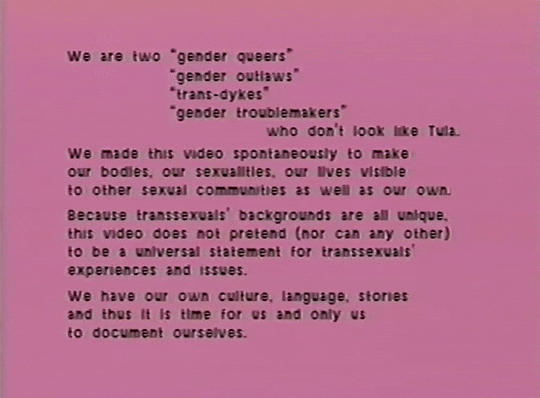





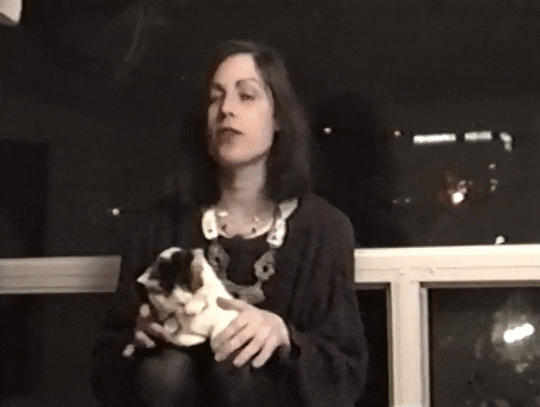

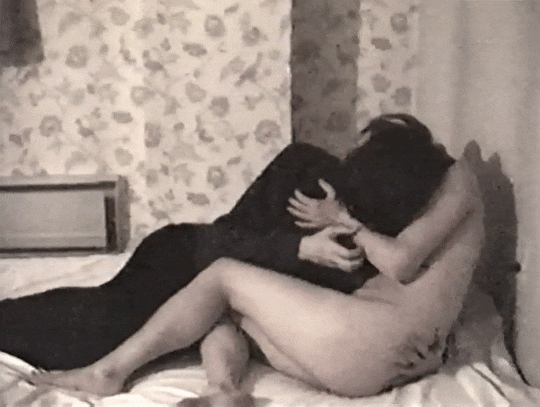

GENDER TROUBLEMAKERS (1993)
dir. Mirha-Soleil Ross & Xanthra Mackay
What happens when two Transdykes get sick of non-transsexual's uninformed representation of their sexualities and their lives? They grab their 8 millimeter home video camera, their last 200 bucks, and come up with an uncompromising in-your-face flick about their shitty relationships with gay men and their unabashed attraction to other trans women.
(link in title)
#lgbt cinema#trans cinema#gender troublemakers#gender troublemakers 1993#canadian cinema#lgbt#trans#transgender#lesbian#canada#lgbt movie#trans movies#canadian movies#lgbt film#trans film#canadian film#lgbt media#trans media#queer cinema#north american cinema#Mirha-Soleil Ross#Xanthra Mackay#1993#90s#1990s#90s movies#90s films#90s cinema#1990s movies#1990s cinema
2K notes
·
View notes
Text
Old queer media will never not make me cry. The reminder that being nonbinary isn’t as new as the language is needed.
#gendertrash #enby #queerzine
0 notes
Text
GENDERTRASH

The ArQuives (Canada’s LGBTQ2+ Archives) created a digital exhibit on the zine “gendertrash” that was published in the early 90s. Mirha-Soleil Ross and Xanthra Phillippa MacKay collaborated to publish four issues of gendertrash which included a variety of articles, art, and resources. The ArQuives describes the zine as “explicitly political, discussing sex-work decriminalization, animal rights activism, the need for transsexual and transgender-specific health care and social services, racism, transphobia among the queer community, advocacy for trans prisoners, and much more.”[1] The digital exhibit provides the history behind the zine as well as an important conversation of the terminology used in the zine. The zine identified itself as “devoted to the issues & concerns of transsexuals.”[2] The ArQuives explains:
In gendertrash, as in Ross’s other works, there is a preference for the term transsexual over transgender. The parts of issues written by Ross and MacKay use transsexual almost exclusively, whereas sections were written by friends and acquaintances (such as those by kiwi, Bobby Gene, and Dancing to Eagle Spirit) often use both terms and the blurbs describing community organizations and resources primarily use transgender or transgendered. Various documents in the Ross fonds suggest that she may have felt some suspicion towards the politics of the term “transgender,” yet everything genderpress published or produced makes space for the inclusion of people who identify with either term.[3]
The zine provides an important look into trans life and politics in Canada and North America in the early nineties. The zine really shows us how many of the issues and politics around queer movements and trans movements are still around – just with new language. The full issues of gendertrash are available to view on the ArQuives website. I have posted some of my favourite parts under the tag “gendertrash” – click here to view!
SOURCES
[1] Sid Cunningham, Caleigh Inman, and MacKenzie Stewart, “Gendertrash: Transsexual Zine, 1993-1995,” The ArQuives Digital Exhibitions, https://digitalexhibitions.arquives.ca/exhibits/show/gendertrash/gtintro/.
[2] genderpress, Mirha-Soleil Ross, and Xanthra-Phillippa MacKay, “Gendertrash From Hell 1,” The ArQuives Digital Exhibitions, (1993): 2, https://digitalexhibitions.ArQuives.ca/files/original/0b998e7e26e97585016650eec5a37df7.pdf/.
[3] Sid Cunningham, Caleigh Inman, and MacKenzie Stewart, “Gendertrash: Transsexual Zine, 1993-1995,” The ArQuives Digital Exhibitions, https://digitalexhibitions.arquives.ca/exhibits/show/gendertrash/a-note-on-terminology/.
53 notes
·
View notes
Text

Xanthra Phillippa MacKay and Mirha-Soleil Ross, partners and co-publishers of Gendertrash From Hell | 1993
#op#photography#xanthra philippa#mirha soleil ross#couples#lesbians#butch femme#trans lesbians#trans wlw#wlw#1990s#1993#trans butch#trans femme#t4t
1K notes
·
View notes
Photo

Mirha-Soleil Ross
Gender: Transgender woman
Sexuality: N/A
DOB: Born 1969
Ethnicity: White
Occupation: Sex worker, performance artist, activist, director
#Mirha Soleil Ross#lgbtq#lgbt#lgbt rights#lgbt+#transgender#trans woman#1969#white#sex worker#performance artist#activist#director
100 notes
·
View notes
Link

From 1993 to 1995, [Canadian artist-activist] Mirha-Soleil Ross and partner Xanthra Phillippa MacKay published five issues of gendertrash from hell, a quarterly zine that “[gave] a voice to gender queers, who've been discouraged from speaking out & communicating with each other". They managed the zine's publisher, genderpress, which also distributed other transsexual pamphlets and literature, corresponded with local organizations and sold buttons.
In standard zine format, gendertrash was a combination of art, poetry, resource lists, serialized fiction, calls to action, classified ads, illustrations and collages and movie reviews. By and for transsexual, transgender and transvestite people, it addressed gender experiences at the individual and societal level and prioritized sex workers, low-income queers, trans people of colour and prisoners. Articles frequently addressed the erasure of transsexuals from lesbian, gay, bi and queer communities and the communities' co-opting of trans identities and issues. (Wikipedia)
3 notes
·
View notes
Text
I was reading this 2012 blogpost by Carol J. Adams, a vegan-feminist scholar, where she talks about being “cancelled” for supposed (unproven, unsubstantiated) transphobia by trans activist Mirha-Soleil Ross when I came across this passage I just want to share. I think it really resonates with the experience most radfems have when trying to discuss women’s issues, an experience I’d say has only gotten more ubiquitous, more insidious, and more grievous in its impact on silencing women in the near decade since this was written (emphasis my own):
I sense that younger feminists have been encouraged toward a view that dismisses second wave feminism. This creates on the one hand an ahistorical understanding of feminism while also allowing a certain response. It seems as though what is being said is “that Carol Adams, second wave radical feminist with her ‘old’ ideas--we need to teach her a lesson.” Yet, second wave radical feminism is the source for intersectional analysis. It is important to understand why that is.
Instead, a campaign of intimidation, harassment, and libelous charges occurs. It seems the main purpose is to keep me from speaking on college campuses or get me disinvited if I am speaking. Their goal is to silence me.
Libel was always around, but it's become easier for false information to be spread through blogs and responses to blogs, such that it trickles down and then gets re-posted on other forums like Reddit and facebook, and eventually makes it to larger blogs and plays a role in decisions made on college campuses and beyond. In activism and in life, by having the courage to ask direct questions rather than relying on potentially false Internet claims, we're more likely to arrive at the truth of any matter. By wanting to keep me off campus, the possibility of opened space for multiple views and politics to be expressed is closed off. Yet, dialogue is so important. If one is a theorist and activist one is constantly in dialogue. Feminism is an evolving discourse, which allows a multiplicity of views to be captured under the rubric of a concept. We have to learn to discuss these issues with each other and disagree with each other in ways that are constructive. Intersectionality means that there are multiple participants in any discussion about oppression.
Who benefits from this attempt to silence me and to intimidate people who work with me? Why is there an incapacity to trust readers or listeners to evaluate what they read and hear? By silencing the discussions before they happen, everyone involved is done a disservice.
Keep in mind that Adams is not particularly radical, not gender critical, thinks trans people are oppressed, and was still facing transphobia accusations in 2005 for... elucidating the ways both animals and women are “consumed” in popular culture and analyzing why dead animal bodies and women’s bodies are so often compared. Instead of just criticizing Adams’ views on prostitution and human trafficking, Ross (who in addition to being trans is a sex worker themselves) attempted to silence her by charging her with transphobia. Probably sounds familiar to most women’s experience here, yeah? While I think the whole blogpost is worth reading (it should make sense even if you’ve never read Adams or aren’t concerned with animal rights) I want to leave this paragraph here if you don’t (emphasis my own). Radfems, I think we know why these TRAs fear individuals thinking critically about their constructions of gender :)
There is some phobia going on. I see a fear of trusting individuals to make their own decisions. I see a fear of making the discussions about our theoretical differences regarding sexual inequality and interconnected oppressions.
#mainly posting this for my own records but maybe some of yall will enjoy this too#fran.txt#radblr#radfem safe#radfems please touch#radfems do interact#terf safe#terfs please touch#terfs do interact#(the answer is that rational people will come to the conclusion that gender ideology is inherently misogynistic if allowed to discuss it :)
11 notes
·
View notes
Text
Throughout the month, I’ll be highlighting resources for studying LGBT history. Today, I’m featuring the Digital Transgender Archive, which houses a completely free library of digital materials from across the world.
The Digital Transgender Archive’s research statement is purposely wide to treat transgender as an umbrella term: “The DTA uses the term transgender to refer to a broad and inclusive range of non-normative gender practices. We treat transgender as a practice rather than an identity category in order to bring together a trans-historical and trans-cultural collection of materials related to trans-ing gender. “ I had the occasion to meet and discuss the archive with K.J. Rawson, its project director, and the archive is an ongoing project, accepting materials from interested parties.
You can browse by map, collection, topic- or you can use their search bar.
Some interesting collections from the Digital Transgender Archive include:

The Christine Jorgensen collection, which features newsclippings, video footage, photography, and writings related to Christine Jorgensen, the first person in the United States to become widely known for having gender realignment surgery.
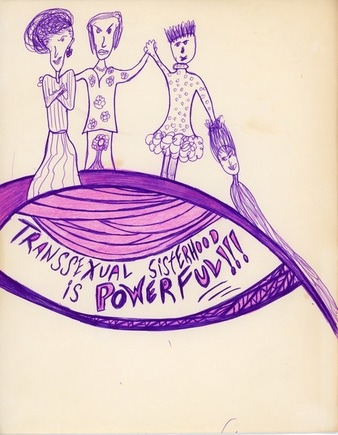
Gendertrash: Transsexual Zine: In the early 1990s Mirha-Soleil Ross and Xanthra Phillippa MacKay formed a publishing company called genderpress. Between 1993 and 1995 they produced four zines entitled gendertrash from hell.
Oral Histories with People of Color: highlighting the literal voices of queer and trans people of color, from the 1990s on.
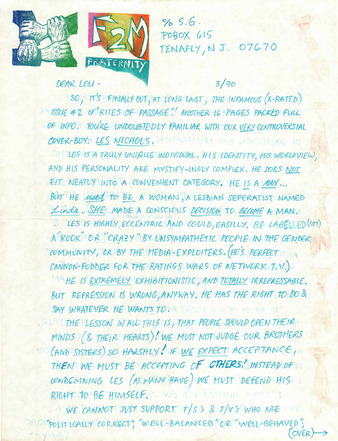
The Lou Sullivan Collection: includes letters between Lou and various medical professionals, colleagues, and friends. Lou Sullivan was known for identifying as an openly gay trans man and fought for the medical and social rights of those who identified similarly.
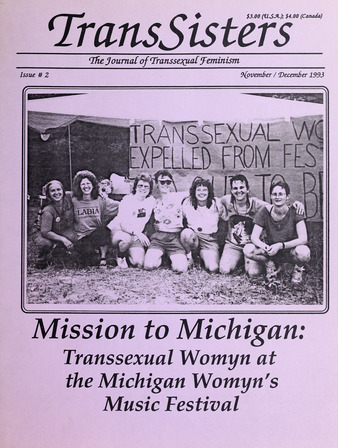
TransSisters: The Journal of Transsexual Feminism: was created by Davina Anne Gabriel to combat the routine silencing of transgender women by the academy.
These are just a few of the collections, which you should absolutely explore!
#digital transgender archive#transgender#lgbt#pride month#transgender history#lgbt history#zines#lou sullivan
556 notes
·
View notes
Text

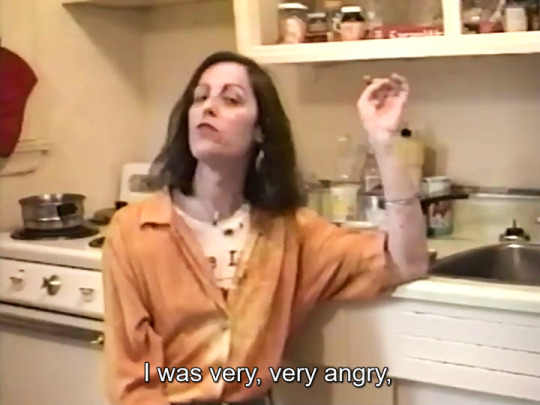

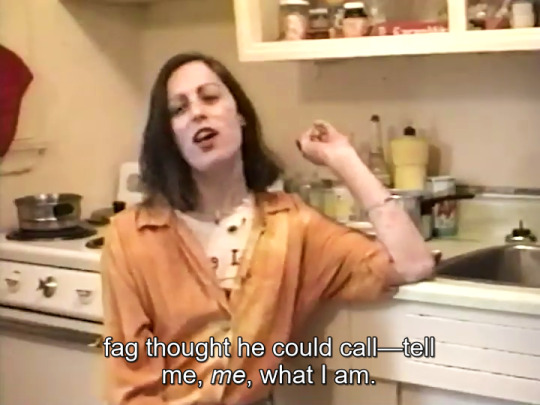
Gender Troublemakers (1993), dir. Mirha-Soleil Ross and Xanthra MacKay
#gender troublemakers#gendertroublemakers#mirha-soleil ross#xanthra mackay#film#film stills#movies#movie stills#cinema#trans#my posts
1K notes
·
View notes
Photo

xanthra phillipa mackay and mirha-soleil ross photographed by jennifer o’connor, 1993
251 notes
·
View notes
Note
hello Najia! i just got a history project, and i want to do it on something to do with lesbians. can you reccommend of the top of ur head some interesting lesbian figures or lesbian movements? or lesbians that contributed to some amazing thing? thank you! xx
definitely check out the Lesbian Herstory digital archives! they’re got a bunch of photographs and taped interviews that have been digitised, including a collection about lesbian bar culture in Buffalo, NY in the 1930s-60s called “Boots of Leather Slippers of Gold: A History of a Lesbian Community” (also the title of a book based on the interviews, which I highly recommend)
people (keep in mind that LGBT community & terminology didn’t always work exactly as they did today and some of these people may not have been or described themselves as lesbians–regardless, this history is important):
Sylvia Rivera (drag queen, gay liberation activist, advocate for the homeless)
Stormé DeLarverie (MC, drag king & butch lesbian who fought with police during the Stonewall riots)
Mabel Hampton (dancer, domestic worker, open lesbian)
Ernestine Eckstein (lesbian, gay & lesbian rights and Civil Rights activist, feminist)
Rush Ellis (oldest living open lesbian, owner of a printing business, activist)
Rita Mae Brown (author, activist, feminist)
Mirha-Soleil Ross and Xanthra MacKay (transsexual once-girlfriends & videographers) created the film Gender Troublemakers and the zine Gender Trash From Hell
Barbara Smith (lesbian feminist and socialist)
Jewelle Gomez (writer, critic, lesbian)
Carol Riddell (transsexual, lesbian, writer, sociologist)
Zanele Muholi (Black South African visual activist)
events, movements, groups:
the homophile movement (precursor to the gay rights movement)
The Stonewall riots (vital!)
Street Transvestite Action Revolutionaries (founded by Marsha P. Johnson & Sylvia Rivera)
Gay Liberation Front (GLF)
Lavendar Menace and Radicalesbians (and another link)
The Lesbian Avengers
first National Third World Lesbian and Gay Conference, 1979
first National March on Washington for Lesbian and Gay Rights, 1979 (read the official souvenir program here)
basically lesbian history & the history of lesbian resistance is inextricable from struggles against capitalism, homelessness, and AIDS, and from gay activism more broadly
also check out @h-e-r-s-t-o-r-y, womon.tumblr.com/tagged/lesbian%20herstory, the GLBTQ archive, ONE National Gay & Lesbian Archives, Canadian Lesbian + Gay Archives
69 notes
·
View notes
Text

Xanthra Phillippa MacKay and Mirha-Soleil Ross, partners and co-publishers of Gendertrash From Hell | 1993
#op#photography#couples#lesbians#trans women#genderqueer people#xanthra philippa#mirha soleil ross#butch femme#trans butch#trans femme#1990s#1993#wlw#trans wlw#trans lesbians
861 notes
·
View notes